Pokemon Go: All you need to know
- Published
The BBC's Chris Foxx took to the streets to explore some of the app's highs and lows
I've heard of Pokemon. Is it a thing again?
Yes - Pokemon Go is an augmented reality game on smartphones.
It uses your GPS. You play by walking around the real world catching cutesy little virtual monsters like Pikachu and Jigglypuff in places near your phone location and training them to fight each other.
The monsters in it were first popular in the 1990s when they started on the Nintendo Game Boy. Trading cards were a huge hit in school playgrounds well before Minecraft, but after yoyos and, well, marbles.
Pokemon has been out on Game Boy and DS, it's been a cartoon programme and it's been a low-tech trading card game, but this is the first time it's been a smartphone game.
Pokemon = pocket monster
Pokestop = landmark
Pokeball = a supply that you can throw to capture Pokemon for training
Gym = a location where Pokemon battle each other
Pikachu = the most famous Pokemon and an icon of Japanese culture
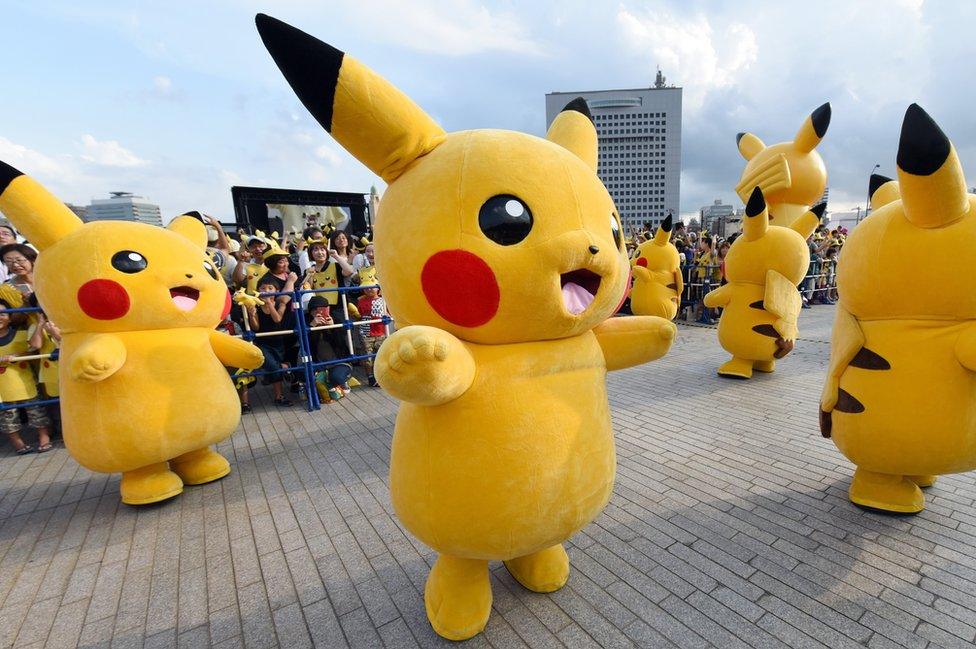
These people are dressed up as Pikachu, a fast-moving Pokemon with electric powers
How can I get my hands on the game?
On the App Store (iPhone) or Google Play (Android). It's free but as with other free games, there are things to buy with real money once you're in the game.
It's out in Australia, New Zealand and the US and will be released in Japan soon, but people in the UK have to wait for some time yet.
So many people have been using it that the servers have been crashing. That's why the makers Niantic Inc - a spin-off of Google's parent company Alphabet Inc - are holding off on rolling it out all across the world for now.
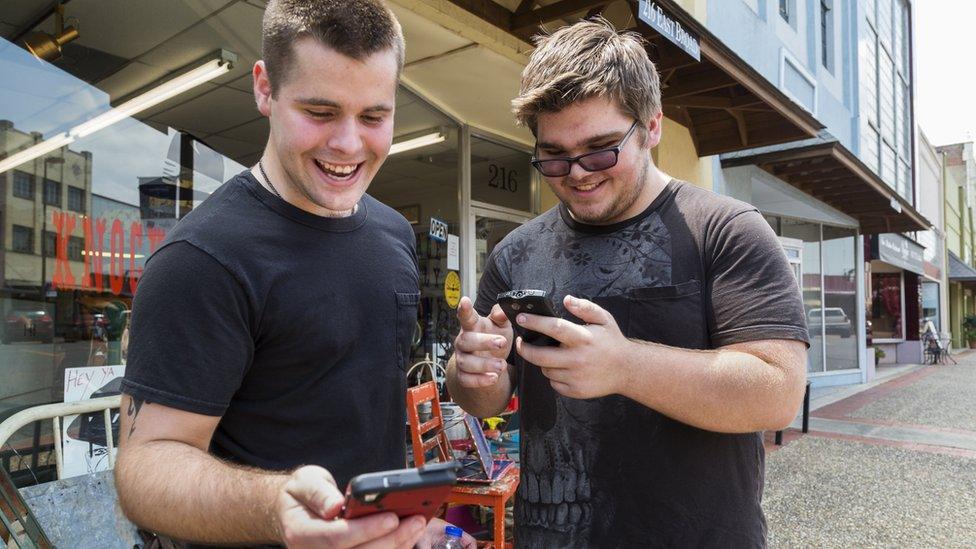
These brothers admitted that they had never gone downtown for pleasure in their hometown until they downloaded Pokemon Go
What's the weirdest thing that's happened someone playing it?
Oh, take your pick...
An American woman found a dead body while she was looking for a Pokemon in a river near her home. Police said the man had died within the last 24 hours and no foul play was suspected.
Four people were arrested, external after they used the game to lure players to remote places and then rob them at gunpoint. In response, the makers of Pokemon Go have said people should "play with friends when going to new or unfamiliar places" and "remember to be safe and alert at all times".
The anti-gay Westboro Baptist Church in the US is the location of a gym in the game, and players planted a pink "Clefairy" Pokemon, external called Love is Love there. The church has responded with a series of social media posts calling the Pokemon a sodomite.
There have also been plenty of reports of people falling over and grazing or cutting themselves because they're not paying attention to what's in front of them while they play.
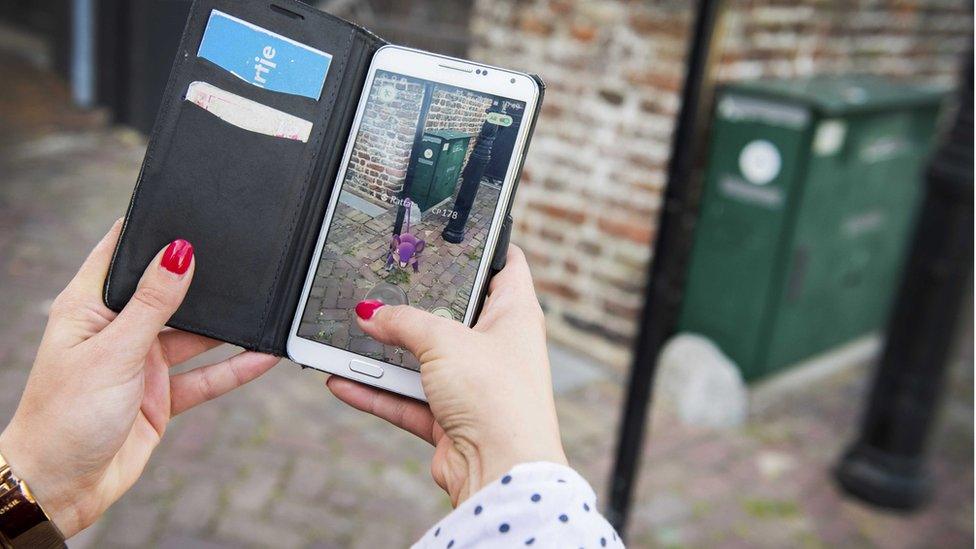
The world you see on your Pokemon Go screen corresponds to the world you see around you
Should I worry about my privacy?
Some people have pointed out, external that because it works in real time, if you are close to another player in the game you can probably see them in real life.
When you sign up to play, you allow Niantic Labs to use your location and share it through the app.
This is similar to what all social networking apps ask for, but while you can turn the location functionality off with the likes of Facebook and Twitter, doing the same for Pokemon Go is going to make you less able to actually play the game.
Has the game been successful so far?
Hasn't it just!
It's added more than $7bn (£5.4bn) to Nintendo's value by virtue of shares in the company rallying since it was released.
The game has dominated gaming charts in the US and it seems to be capturing two markets - the teens who are "catching em all" for the first time, and the people in their late 20s and early 30s who remember it all from the first time round and fancy a little nostalgia.
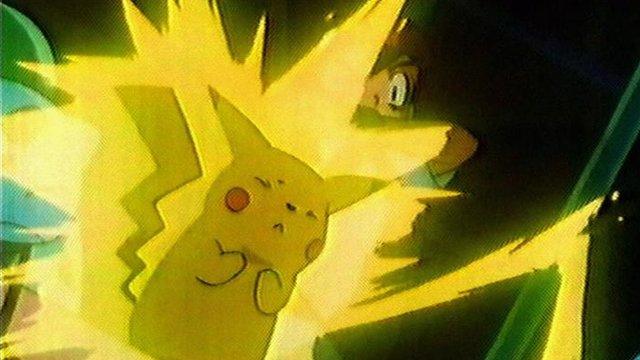
This is what Pikachu looked like in 1997 when it was first on TV
- Published11 July 2016
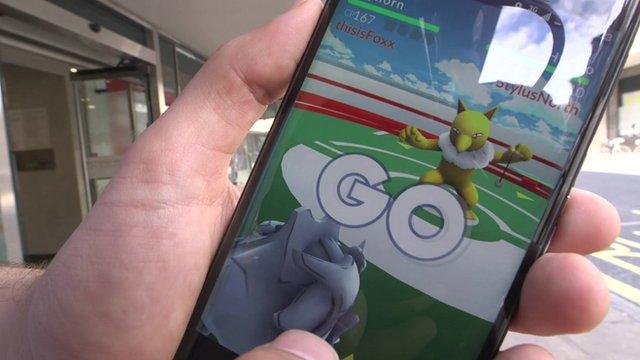
- Published11 July 2016